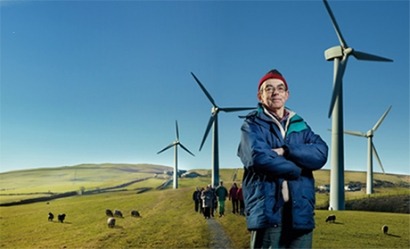
Energy market diversification has been a heated topic of political debate. Attempts to address an unbalanced and unsustainable market have largely been approached in terms of widening consumer choice, ushering in new competition and breaking up supply. But such focus is missing the real opportunity, which is to change the market completely by encouraging consumers to become producers and owners of their energy.
The authors of “Re-energising Our Communities: Transforming the energy market through local energy production” (Caroline Julian, Senior Researcher at ResPublica, and Julian Dobson, a ResPublica Research Associate) argue that the UK government must “broker in the social, environmental and economic benefits of community energy” by putting local communities at the heart of the development of new projects and ensuring that they enjoy more of the economic benefits from sustainable energy production.
Transformative capitalism
“By drawing such opportunities to the forefront of market reform, the sector can usher in, not only a responsible capitalism, but a truly transformative capitalism which places the market back into the hands of the people,” they say.
The paper reviews the benefits created by existing community energy schemes, and how these create a framework of responsibility for users, landowners and developers. Though the environmental and social effects are benefits in themselves, the micro-economies created via community energy projects are transformative on a much broader level, achieving incremental economic change to the entire supply and demand process.
"The beauty of co-operatively-owned, community-level renewable energy is that it solves the twin issues of social acceptance and economic efficiency. This report is right to call for intelligent nudges to make it easier for people to come together, reversing decades of energy policies limited to 'big is beautiful'. Everyone benefits if we can draw community energy production into the centre of the new energy economy," says Ed Mayo, ResPublica Fellow and Director General of Co-operatives UK.
Community schemes can only begin to transform the wider energy economy when self-supporting trust networks are enabled both within and between communities and other partners. Through ‘market-making’ practices, local residents achieve powers of ownership, commissioning and distribution, bringing real choice and true ‘bottom up’ competition back into the entire system and creating opportunities for all types of communities, beyond the choice few.
This paper turns to a variety of inspirational cases, from Fintry Renewable Energy Enterprise, which negotiated a community stake in a nearby wind farm being developed by a commercial company; West Oxfordshire's Low Carbon Hub, which aims to generate and connect enough energy to replace the local Didcot power station closing in 2015; and the German town of Schönau, which set up its own energy co-op to buy the local electricity grid.
It sets out a series of recommendations that draw on and extend the Government's localism and 'big society' agendas in addition to proposals for the reform of the energy market itself. It recommends that 'community energy' must become a central consideration to the formation of energy policy and calls upon the Department for Energy and Climate Change to move beyond the delivery of grants and subsides alone. Recommendations are set forth to enable local partnerships and empower local people, including the creation of hybrid legal models for community and private returns and the introduction of the community right or entitlement to own the local electricity network.
Following Germany’s lead
The publication warns that failure to recognise and back the UK’s huge community energy potential will have serious consequences on the Government’s climate change, emissions and fuel poverty targets. Community generation in Germany contributes one-quarter of all renewable energy - in the UK it’s less than one per cent.
“Boosting community energy schemes will enable more cash-strapped households to free themselves from the power of the Big Six and earn money from clean British energy,” says Friends of the Earth’s Executive Director, Andy Atkins. “It’s time for Ministers to really give power to the people.”
The report’s authors acknowledge the Government’s desire to reform current market and increase community production, but argue the current approach to market reform is piecemeal and doomed to fail.
“There is currently no coherent mechanism for applying this aspiration within the energy sector. Instead DECC relies on ad-hoc announcements of support for community renewable scheme,” they say.
The report says that local people should be empowered to move beyond the status of passive users and consumers and instead become producers and distributors of their own energy supplies. It concludes by arguing that to take community energy projects to a sustainable level, a new hybrid company structure should be introduced and accordingly incentivised.
For additional information:

